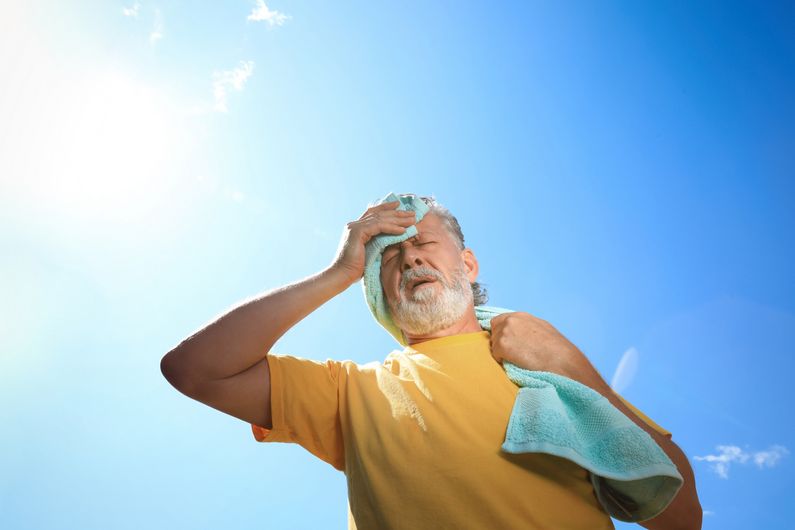Body heat: what to do when the mercury gets the better of you
- UdeMNouvelles
07/25/2023
- Jeff Heinrich
Heatwaves are smothering the globe this summer. UdeM physiologist Daniel Gagnon has some ideas on how best to cope.
The World Meteorological Organization says it expects temperatures to stay above 40 Celsius in North America, Asia, North Africa and the Mediterranean as heatwaves globally intensify into August.
And with the sweltering heat comes renewed warnings of health problems and the risk of early death from too much exposure to the excessive temperatures, with everyone from infants to the elderly affected.
We asked Daniel Gagnon, associate professor at Université de Montréal's School of Kinesiology and Exercise Science, what people can do to cope.
The media are full of news this summer of unprecedented heat waves around the world: in North America, in North Africa, in Asia and the Mediterranean. Climate crisis aside, what can you tell us about the human cost of these heatwaves?
Heatwaves are associated with increased hospitalization and mortality. In 2003, a European heatwave killed 70,000 people. In 2021, the heat dome that hovered over the west coast of North America caused the death of over 600 people in British Columbia. In 2022, the hottest summer on record in Europe killed over 60,000 people. These examples demonstrate the potential danger of extreme heat to human health.
From a physiological point of view, heatwaves are dangerous for three reasons. Firstly, internal body temperature rises when exposed to heat, which can lead to heat exhaustion (dizziness, nausea) or, in the worst case, heat stroke, which is fatal if not recognized and treated immediately. Secondly, perspiration is our body's primary means of cooling itself. However, sweating causes a loss of body water and can therefore lead to dehydration if our fluid intake is insufficient. Dehydration increases the workload on the kidneys, which can lead to electrolyte imbalance and kidney failure. Thirdly, the heart works harder when we're exposed to heat to send blood to the surface of the skin to promote heat loss to the environment. However, the heart's workload can exceed its capacity to supply itself with oxygen and nutrients. In this case, cardiac events can occur, such as a heart attack.
Heatwaves at night can be very hard for people to get through, too, as temperatures barely dip after dark in many places, especially cities. Does the body at rest or in sleep deal differently from excessive heat than when it is active?
The body reacts in the same way to heat during the day as it does at night. However, one important difference is the absence of physical activity for most people at night (apart from night-shift workers), which minimizes the body's heat production. Night or day, the best way to cope with the heat is to avoid exposure. The most effective way of doing this is, of course, to use air conditioning. If air conditioning is not available, an electric fan can be used at night to cool you down, as long as the temperature of the room in which you sleep is below 38 degrees Celsius and you feel the air circulation created by the fan. It's also important to go to bed well-hydrated.
Finally, what about maintaining physical fitness? Should people still be exercising when the mercury continues to climb?
Ideally, yes, because adopting and maintaining an active lifestyle probably confers protection against the health effects of heat. People who are active are generally healthier and therefore less predisposed to the risks posed by heat. What's more, physically active people are generally more tolerant of heat, and their bodies can lose more heat. However, caution is called for when it comes to being physically active in hot weather. If it's not possible to move our physical activity indoors in an air-conditioned environment, it would be wise to train at cooler times of the day, such as early in the morning or later in the evening. We should also avoid exercising in direct sunlight to prevent heat gain through radiation. For the same intensity of exercise, you'll sweat more in hot weather, so it's important to make sure you're well hydrated before, during and after your physical activity. A final tip would be to reduce the intensity of physical activity in hot weather to minimize the amount of heat produced by the body, while still retaining the health benefits of physical activity.














